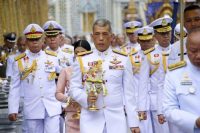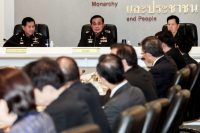
Everybody Won in Thailand’s Election Except the Voters
For a brief time this summer, it seemed like Thailand might finally be on the cusp of truly representative government.
In elections in May, a pro-reform party won the largest share of votes, riding a wave of public discontent over nine years of military rule and the outsize prerogatives enjoyed by the Thai royal family. Thailand’s monarchy is one of the wealthiest and longest-reigning in the world. Backed by the military and the judiciary, it is the linchpin of a conservative establishment that has fought off challenges to its dominance for decades, often with royally-endorsed military coups that overthrew democratically elected governments.… Seguir leyendo »










